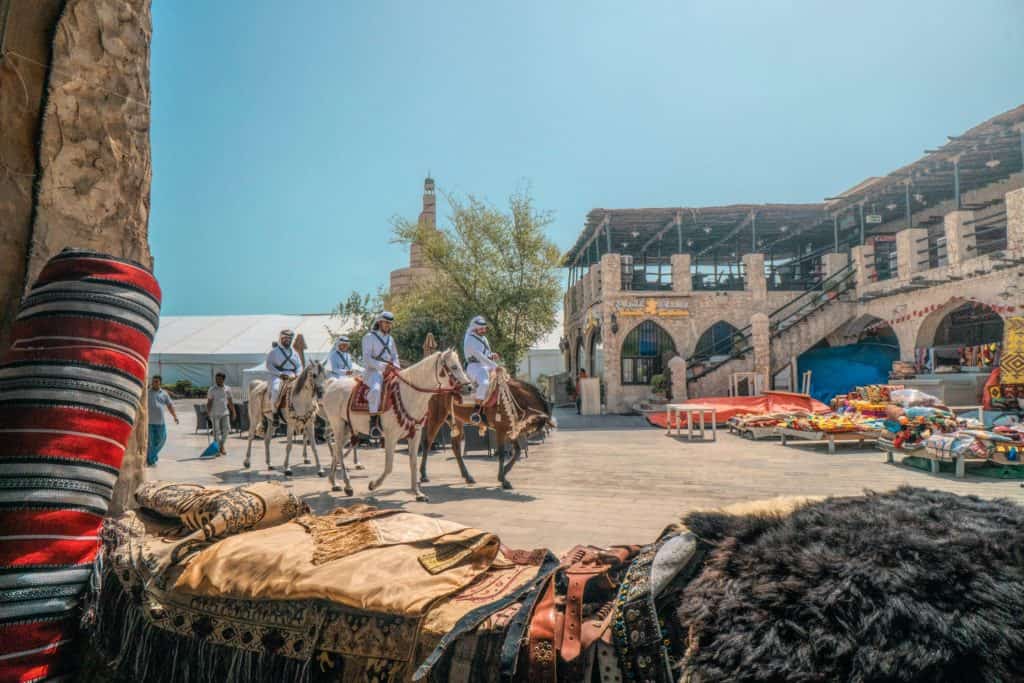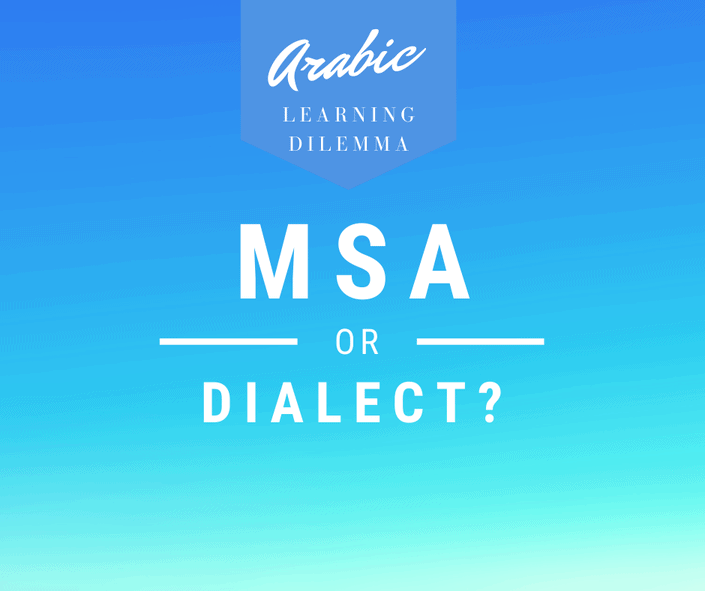Which dialect of Arabic should I learn? That’s a question students of Arabic ask at least once in their learning journey of Arabic and its dialects.
When it comes to learning Arabic, there is an easy choice and a difficult one. It is easy to pick Modern Standard Arabic (MSA) because it is the standardized and de-facto form of Arabic across the Arab world.
Related article —–> Modern Standard Arabic or a dialect?
All educated native Arabic speakers understand MSA.
As for the hard choice, it is often when a learner wants to select a specific Arabic dialect either as an additional variant of Arabic to learn or as the only form of Arabic.
Below are six facts about Arabic dialects you need to know before selecting one.
Table of Contents
1. The easy dialect
When it comes to Arabic dialects, there is no such thing as an easy dialect. However, there are dialects that for some reason enjoy or have enjoyed more research and attention by Western academics.
More research means more human and material capital was invested in studying the dialect and producing study materials for the non-Arab world to enjoy.
As a result, you are more likely to find more books, media products, students and teachers to study Egyptian and Levantine dialects.
Therefore, if easy access to online and in-person instructors is high on your list, Egyptian, and, to a slightly lesser degree, Levantine, are your best bets.
Study materials for Egyptian and Levantine dialects are quite abundant as well, and most American universities offer classes in those two variants.
This is probably why the latest publication of the excellent book Al-Kitaab now offers Levantine and Egyptian dialects in addition to MSA.
2- The widely used dialect
If you are looking to select the most widely understood and possibly most popular Arabic dialect, then Egyptian dialect sits at the top of the list.
There are about 100 million Egyptians living in Egypt and another 5 million Egyptians scattered around the world.
Sizable Egyptian expat communities live in North America, Europe and the Gulf region.
Egypt’s film and media industry dominates the Arab world. There’s not a single day when an Egyptian movie, TV series or talk show is not played in an Arab household.
This simply means that the Egyptian dialect is the most widely understood Arab dialect across the Arab world.
3- The hard dialect

Just like with the easy dialect concept, a hard dialect is a subjective matter. The Maghrebi dialect(s) (Algerian, Moroccan, Tunisian) are considered difficult by the rest of the Arab world.
There are reasons for the perceived difficulty. Due to it being phonetically influenced by Berber, Moroccan Arabic , for example, sounds very fast and hence unintelligible to Middle Eastern Arabs.
Moroccan, Algerian and Tunisian dialects are often said to be peppered by French, Italian and Spanish words. While this is true to a large extent, it can make it an easier dialect to learn for European learners than say Levantine or Egyptian.
On a side note, Arabs in the Middle East are often oblivious to the fact their respective dialects are equally peppered with Farsi and Turkish words.
This perceived difficulty should make it attractive to learners who want to learn an Arabic dialect for professional reasons and are unimpressed with this talk about difficult dialects.
In fact, If you have MSA/Maghrebi dialect combination on your resume, you are more marketable than someone who speak the “easy” Arab dialect, for instance.
Easy does not always mean better.
The Arab Moustache
What’s more, there is a huge Maghrebi population in Europe and North America, which means this could be a good niche dialect to combine with your MSA.
So, if you prefer the unbeaten path, you should possibly consider Maghrebi dialects, particularly if you speak French, Spanish, Italian or Poruguese.
4. The Gulf dialect
If you are learning Arabic with the goal of obtaining work in one of the Gulf countries, then needless to say it is imperative you learn Saudi, Emirati or Kuwaiti dialect(s).
It is even more imperative to do so if you are going to work in the service industry.
When I travel to the Gulf region, I am amazed by how little Arabic many expats know. I understand that many people speak English and probably it’s not needed, but it could make a difference in quality of life and even survival.
Imagine you are in an emergency situation and your life depends on the ability to speak the local dialect. You will need to communicate with the police or EMS who are often locals who speak little to no English.
Another reason is that your Gulf dialect can help you get promoted faster or obtain a better paying job.
5. The neighbors’ dialect
This doesn’t literally mean the dialect of your neighbor. But if you are learning Arabic to boost your professional career in your country or city, it would be best to learn the dialect of the largest community in your area.
For instance, if you are in Sweden, learning Iraqi or Levantine dialect would help you work in jobs that involve contact with the Iraqi or Syrian communities. If you are in France, Spain or Belgium, Maghrebi dialect would be the best choice because you are more likely to work with North African communities.
Similarly, if you are in the US, this matter will depend on the state you live in. For instance, Michigan has large Yemeni, Iraqi and Lebanese communities. Texas boasts a large Egyptian immigrant population. The Central Florida area, for example, has a large presence of Moroccans.
Your geographical location can help you determine your Arabic dialect if you think you will need to communicate with the local communities for it for personal or professional purposes.
6. The default dialect
If you are the undecided learner who has no specific reason to pick one Arabic dialect over another, you can still pick a dialect.
My advice would be to go with the Egyptian dialect. Since it is more widely understood than any other Arab dialect, It would make it worthwhile to learn it since you are more likely to use it.
There is no worst-case scenario in picking an Arabic dialect. There are dozens of Arab countries and millions of speakers of each of these dialects.
Each dialect you learn will enrich your vocabulary and knowledge and offer you another window to rich cultures and traditions.
The worst decision will be making no decision at all.
Hope this posting has shed some light on this dilemma to help you decide which Arabic dialect you should learn.
Which Arabic dialect would you like to learn?





